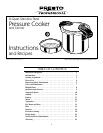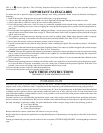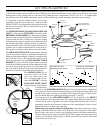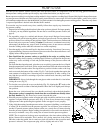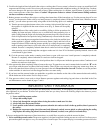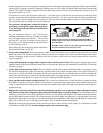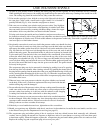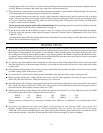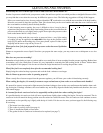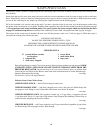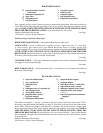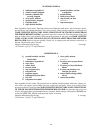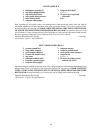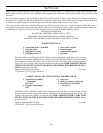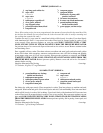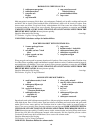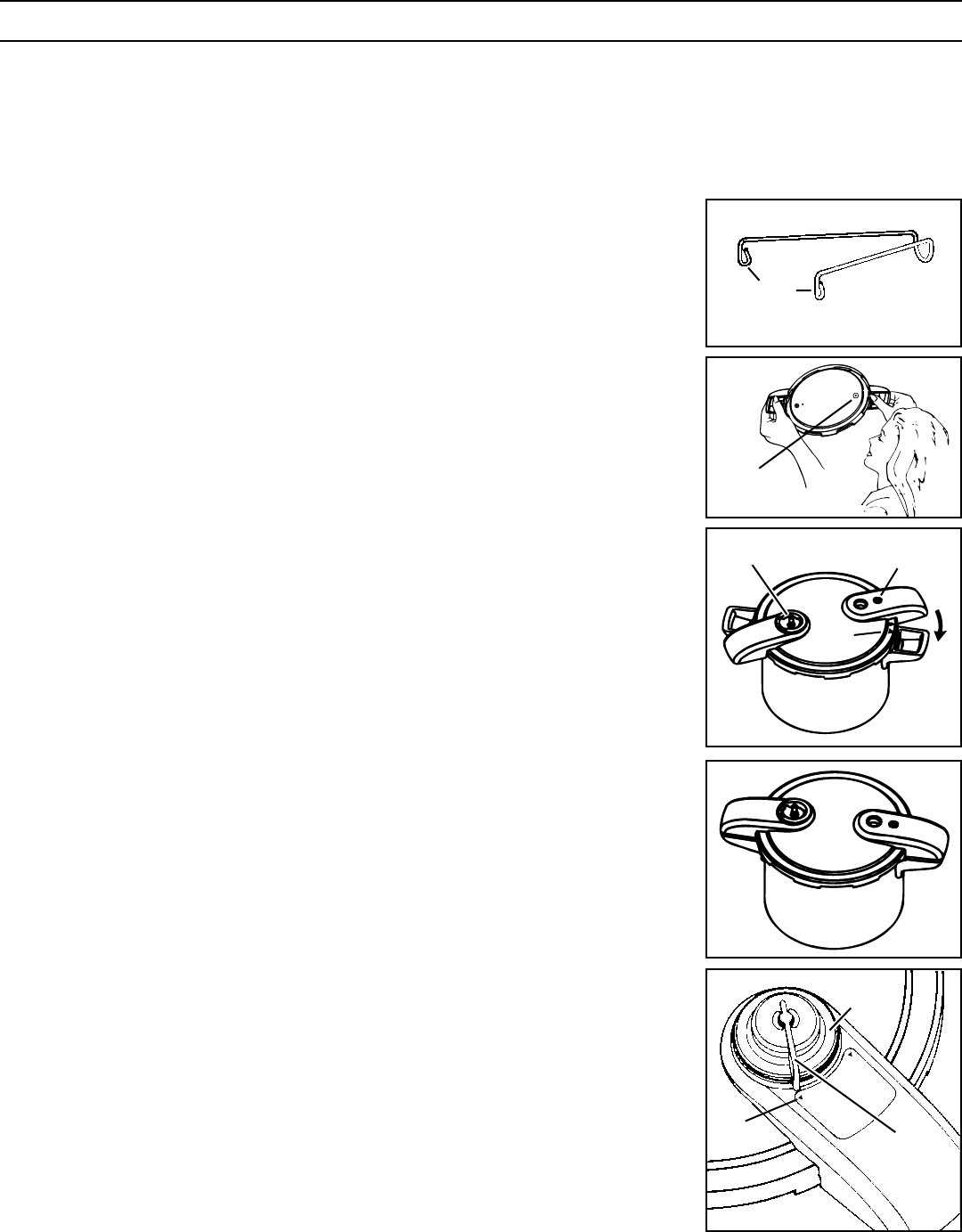
4
Fig. F
P
R
E
S
S
U
R
E
/
S
T
E
A
M
R
E
L
E
A
S
E
Vent Pipe
Air Vent/
Cover Lock
Vent Pipe
Fig. G
“”
Mark
Loop Ends
Fig. E
Position the trivet in the cooker so the loop
ends are towards the bottom of the cooker.
Fig. H
Pressure
Regulator
Fig. I
Lever
Pressure
Arrow
HOW TO USE
Now that you are familiar with the various parts of the pressure cooker, it is important to read the following general information
about pressure cooking and the specific step-by-step instructions before you begin to cook.
Because pressure cooking is a moist heat cooking method, it always requires a cooking liquid. Some of this liquid is changed into steam
to create pressure within the unit. This liquid is usually water. However, some recipes will call for other liquids, such as wine, which
will contribute a unique flavor to the finished dish. Very little moisture is lost during the pressure cooking process. Therefore, only about
1 cup more liquid than is desired in the finished dish is needed.
To assure the very best results every time, carefully follow these step-by-step instructions
for pressure cooking:
1. Prepare food according to the directions in the recipe you have selected. If a larger quantity
is desired, you may double ingredients. Be sure not to overfill the pressure cooker (see
page 6).
2. For vegetables, soups, rice, seafood, and desserts, skip to step 4. Recipes for most meats
and poultry will call for browning before you begin to pressure cook. Do not preheat the
pressure cooker. Pour cooking oil into pressure cooker. Turn heat selector to medium and
brown food prior to pressure cooking. Caution: If cookware is overheated excessively
when empty, the bottom may warp or melt. If melting occurs, do not remove cookware
from the cooking surface until the cookware has cooled completely.
3. Sear thoroughly on all sides until food is deep brown and crisp. Lower heat, if necessary,
to prevent burning. Season to taste. Remove pressure cooker from heat and allow to cool
slightly before adding liquid to pressure cooker.
4. Pour liquid into the pressure cooker, as specified in the recipe or cooking chart.
Pressure cooking always requires a cooking liquid. Failure to put liquid in the pressure
cooker may cause scorching of food and possible damage to the pressure cooker and
stovetop.
For foods that have been browned, place the cover on quickly to prevent the loss of liquid
through evaporation. For all foods, follow recipe instructions. Place the trivet and steamer
basket, if needed, into the cooker. If using the trivet, position it in the cooker so the loop
ends are towards the bottom of the cooker (Fig. E). Cook foods together that require the
same amount of cooking time. Seasoning may be added before or after cooking. You
may find that you add less seasonings to pressure cooked foods since they retain their
natural flavors.
IMPORTANT: Always look through the vent pipe to make certain that it is clear before
closing the cover (Fig. F).
5. To close the cover, place the cover over the body (Fig. G), aligning the “” mark on the
cover with the arrow on either of the body handles. Move the cover slightly until it drops
into position.
Rotate the cover clockwise until the cover handles are directly above the body handles.
The pressure cooker is completely closed when the cover handles are directly above
the body handles (Fig. H). Do not try to rotate it beyond this point.
6. Place the pressure regulator on the vent pipe and rotate clockwise until the lever on the
regulator is aligned with the pressure arrow (Fig. I). Note: It may be necessary to apply
slight pressure when positioning the regulator on the vent pipe to seat it properly.
7. Using a high heat setting, heat the pressure cooker. As pressure is building, a small amount
of steam will be released from the pressure regulator. You will know your cooker has
reached 15 pounds pressure when you hear and/or see a steady flow of steam releasing
from the pressure regulator. Begin cooking time when this occurs and lower the heat as
necessary to maintain a very slow, steady flow of steam from the pressure regulator.
NOTE: The air vent/cover lock may move up and down a few times when cooking first
begins. Steam will be noticeable. This is normal. Air is being vented out of the cooker.
Once the cooker has sealed, the air vent/cover lock will remain in the up position until
pressure is released. The overpressure plug will rise slightly and seal as well.



